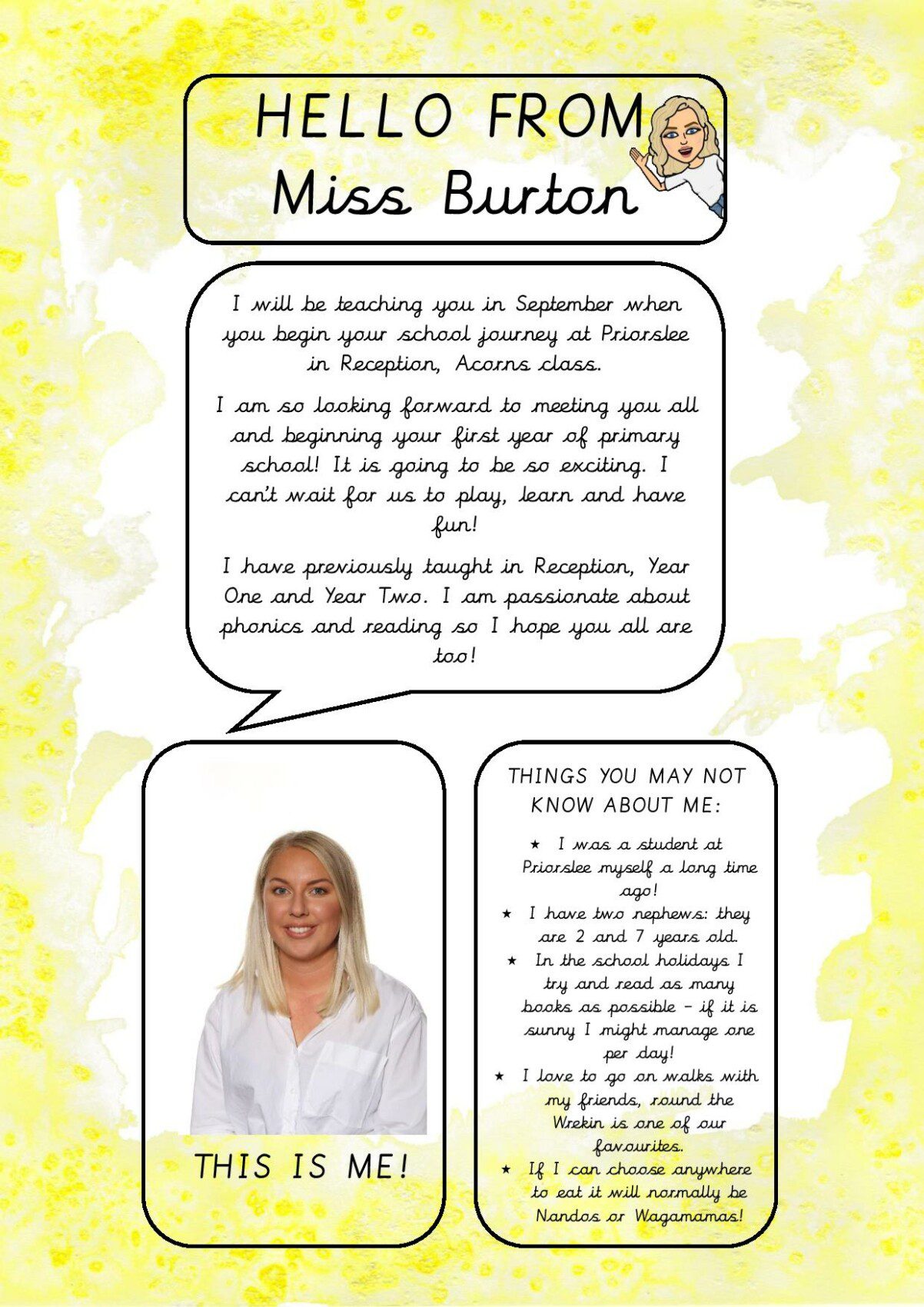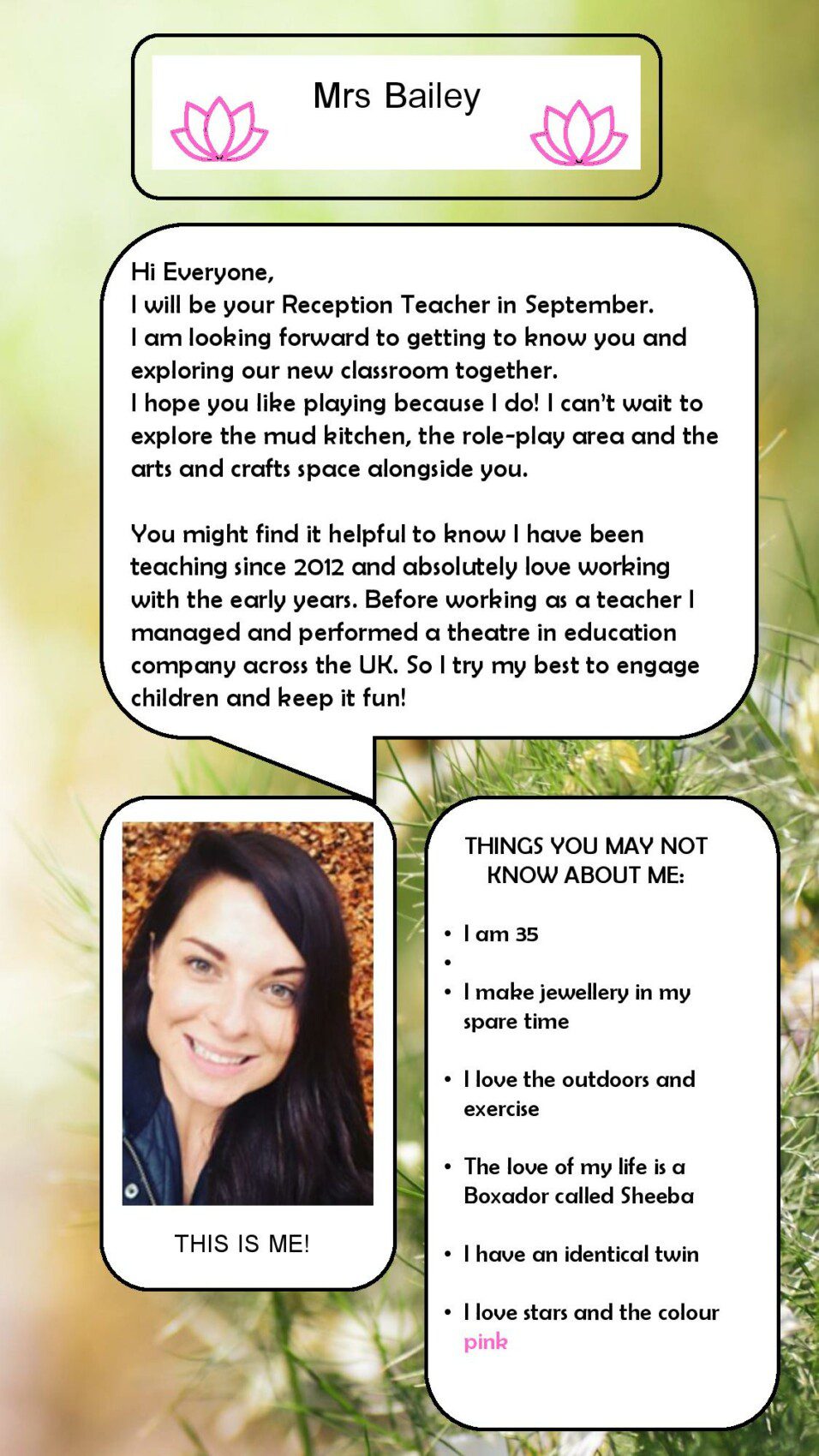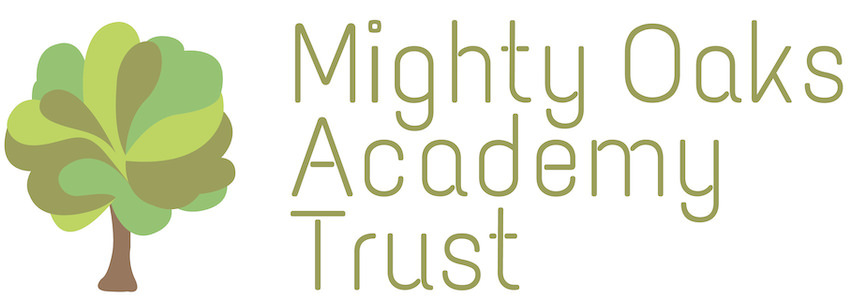EYFS (Reception)
Topics and Themes
| Autumn 1 | Autumn 2 | Spring 1 | Spring 2 | Summer 1 | Summer 2 | |
| Question / theme to explore | Who am I? | What are buildings for?
(Traditional Tales) |
What animals can I meet?
(Amazing Animals) |
Where can we travel?
(Transport) |
What can you find underground? | What meets the sea?
(At the beach/Seaside) |
Statutory Assessments
At the beginning of Reception all pupils have to complete a Baseline Assessment. The reception baseline is a short assessment designed to capture the wide range of attainment in mathematics and literacy, communication and language that is seen in reception classes at the start of the year. It also has clear links to the key stage 1 and key stage 2 curricula against which progress will be measured.
The baseline assessment is carried out with a familiar adult on a one-to-one basis is a quiet, calm space.
At the end of Reception we have to complete an EYFS Profile. The EYFS profile is used to inform parents about their child’s development. Children are defined as having reached a Good Level of Development (GLD) at the end of the EYFS if they have achieved the expected level for the ELGs in the prime areas of learning and the specific areas of mathematics and literacy. This is also shared with the Local Authority.
Key Texts and Books
We follow the Pathways scheme for Literacy and the main key texts that we follow throughout the year are:
| Autumn 1 | Autumn 2 | Spring 1 | Spring 2 | Summer 1 | Summer 2 | |
| Pathways text | Peace at Last by Jill Murphy | The Three Little Pigs by Mara Alperin | Let’s all creep through crocodile creek by Jonny Lambert | The pirates are coming by John Condon | Gigantosaurus by Jonny Duddle | The See Saw by Tom Percival |
Other linked texts will be explored alongside these.
Homework Expectations
Please read with them everyday and sign their reading record so that we are aware of what they are completing at home. Dojo’s will be awarded for weekly reading and a special ‘hot chocolate’ prize will be given to children who are consistently reading daily.
We will also be handing out weekly phonic sheets for parents to use with their child at home. Please practise saying the letter sounds and forming the graphemes with your child at home as often as possible as this will support your child’s knowledge and confidence within phonic lessons. Please see our phonic section of the website for more information.
At the start of the spring term, we will be adding optional maths tasks onto the NumBots website. We will reward children by sharing their accomplishments with their peers and offering Dojo points. Login details will be given out at the start of the spring term however, you are also able to access and play as:
How you can help your child at home
Reception year can be full of change so establishing a good morning and bedtime routine, allowing your child to have the recommended 10-13 hours sleep, will give them the best start to a day at school.
Each day your child will need:
- A water bottle (Ofsted recommend no fizzy drinks, juice and squash)
- A suitable coat for the time of year (children will go outdoors whatever the weather)
- If your child is prone to accidents, please place a spare set of clothes in their school bag.
- Please ensure your child comes to school with their plastic book bag and wallet, along with their reading diary and book.
Reading: all children are provided with a Little Wandle phonics scheme book alongside a sharing book. You will find more information on how to use these in the phonics section of the website.
To keep up to date with events, diary dates and additional information please download the My Child At School (MCAS) app. There will be a weekly letter from the Head of School and an overview of the week to come. We also encourage parents to download the Tapestry app, which will allow you to view all the wonderful ‘Wow Moments’ your child has had at school that week.
Curriculum in the Early Years
There are 7 areas of learning that we teach to in EYFS. Children have access to indoor and outdoor provision during the day, with enhancements provided to challenge learning.
Prime:
- communication and language
- physical development
- personal, social and emotional development
Specific:
- literacy
- mathematics
- understanding the world
expressive arts and design
Useful Links
The Development Matters Curriculum:
NRICH EYFS https://nrich.maths.org/13371
NUMBERBLOCKS EPISODES https://www.bbc.co.uk/iplayer/episodes/b08bzfnh/numberblocks
PHONICS https://www.littlewandlelettersandsounds.org.uk/resources/for-parents/
Please see the phonics section of our website for more in depth information on how children learn to read at Priorslee Primary Academy.
CBEEBIES GAMES AND ACTIVITIES https://www.bbc.co.uk/cbeebies
COSMIC KIDS YOGA https://www.youtube.com/user/CosmicKidsYoga
SPEECH AND LANGUAGE SUPPORT https://speechandlanguage.org.uk/talking-point/parents/resources/
BEEU MENTAL HEALTH AND WELLBEING SUPPORT https://camhs.mpft.nhs.uk/beeu/parents-carers
FOREST SCHOOL INFO https://wrekinforestschool.co.uk/about-us/what-is-forest-school




